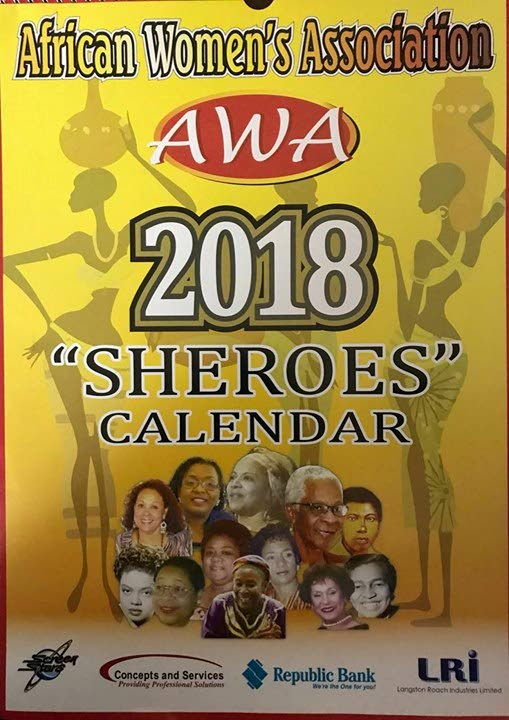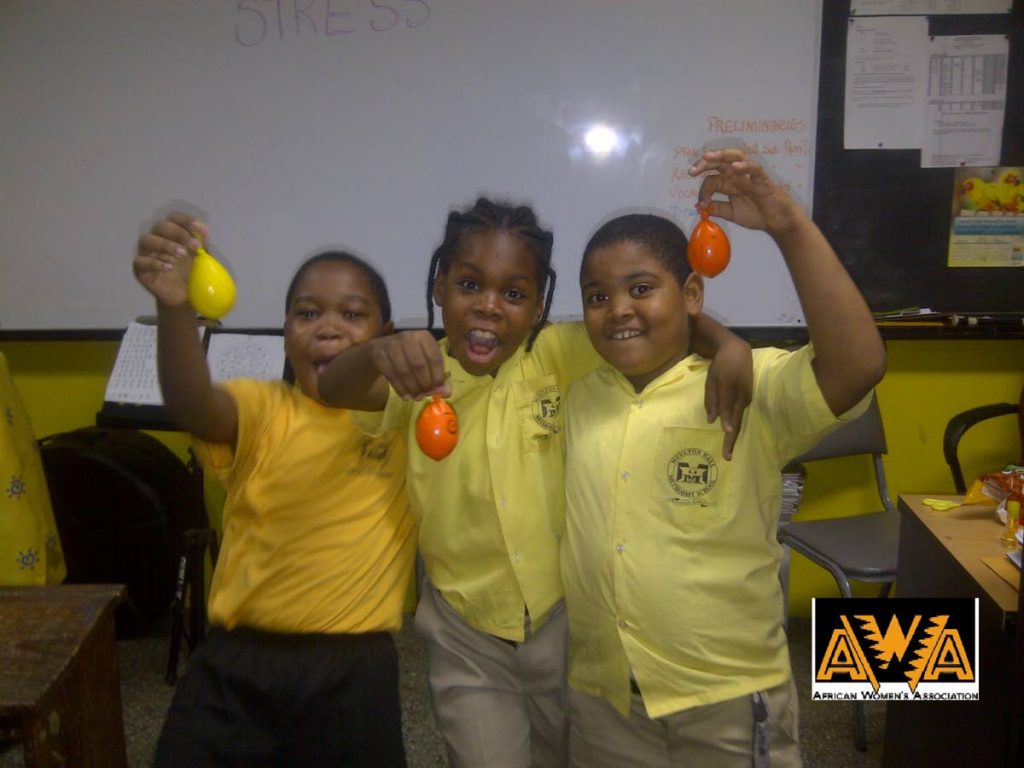Showcasing Sheroes: African body working to revive culture

The African Women’s Association Sheroes calendar features and highlights the work of 12 women: Allyson Hennessy, Claudia Jones, Pamela Nicholson, Hazel Scott, Molly Ahye, Professor Rhoda Reddock, Marjorie Padmore, Elma Francois, Jean Pierre, Dr Eastlyn McKenzie, Eintou Pearl Springer and Hazel Ward-Redman. The calendar highlights the work of some of TT’s “phenomenal women.”
The African Women’s Association (AWA) and its members hope that this becomes a keepsake in many homes. While the calendar assists the organisation with fundraising, it serves a much greater purpose –to educate all willing to learn about black women who have shaped the TT we know today.
AWA, although around for sometime (founded in 1980) was dormant for some years, until it was revived by its current president Lilla Williams in 2009. The NGO’s main aim is to “empower communities of African heritage through education, cultural and historical awareness, identity and entrepreneurship.”
Its revival began when Williams and others issued a call to help members of the public with document preparation, something they realised posed a challenge to many people.
The association’s education officer Carline Gumbs said, “The response was so overwhelming.” Gumbs and treasurer Marilyn Baynes said to Newsday that it was soon realised that there was a need for a group to assist in empowering and helping people, particularly in the Belmont area.
The African Women’s Association is currently based at 81 Belmont Circular Road, Belmont. The association has seven executive members and a core membership of about 20 people. Education and awareness are central to the association. And, it achieves this through a number of initiatives like the calendar, its Love Lights after-school programme as well as juice, herbs and spice projects.

The juice and herbs and spice projects began in 2011 and is aimed at “giving women a skill they could use for enterprise,” Gumbs said.
It teaches the women entrepreneurial skills. “Under the juice project they were able to source the fruits they use for the juices, they learned how to do the testing and basically come up with the formula for each product and learn how to manage the equipment and other things,” she added.
While the association is called the African Women’s Association, it is not exclusive to women. Men, Gumbs said, have assisted and have been a part of the group. So much so that the group is also considering whether it should do a heroes calendar as well.
“Very often you hear about a women’s project and you think men are excluded but they are not. It is really about giving women a forum and a space where they can come together. Like a community living room kind of thing.”
The association’s after-school programme has also pushed its mandate forward to educate and develop its community. The association said of its after school programme, “The AWA was inspired to launch The Love Lights After-School Program in 2013, when several after-school sessions at a school in Port of Spain unearthed a need for a more robust, interactive and sustained self-development programme at the primary level. “Love Never Loses Its Way Home” inspired the name Love Lights.

The AWA executive members wanted to provide more than just a homework centre for students in the Port of Spain area, particularly East Port of Spain. Students from the East Port of Spain catchment area did not always have access to regular extra-curricular activities, especially those that addressed personal growth and life skills.
Due to the success and popularity of the after-school programme at Moulton Hall Methodist School at Duke Street, Port of Spain.

Comments
"Showcasing Sheroes: African body working to revive culture"